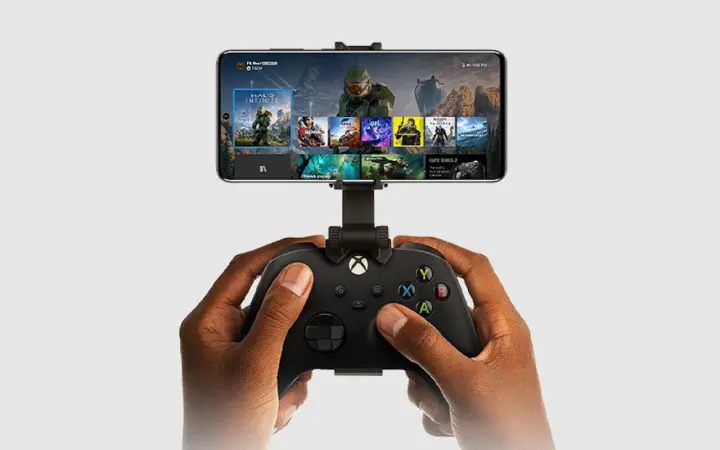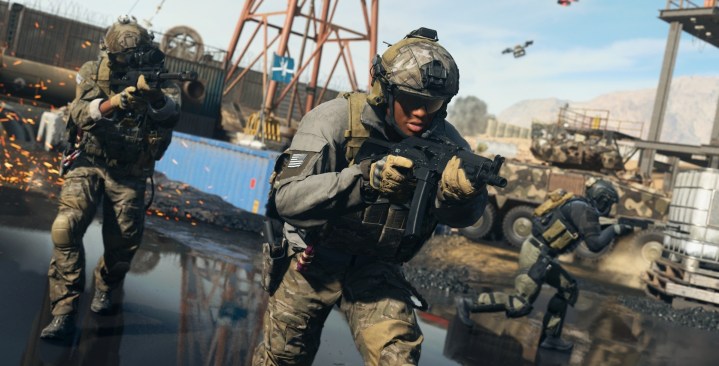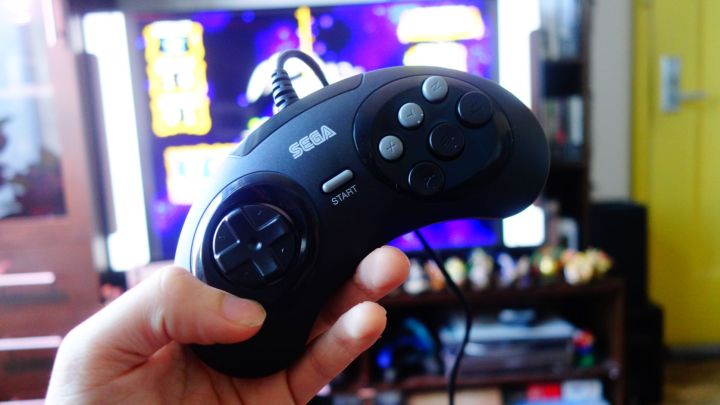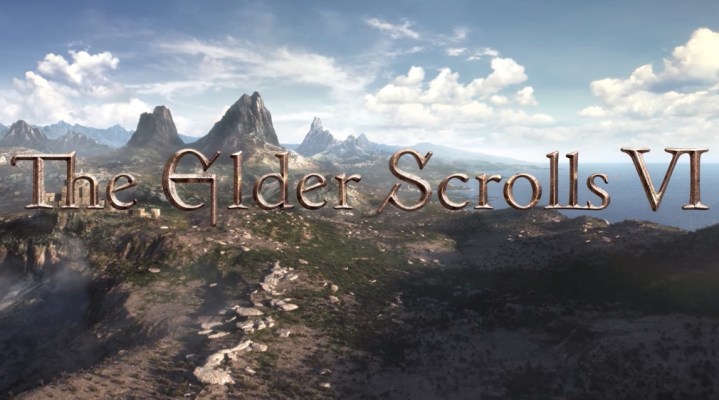We have reached an inflection point in Microsoft’s efforts to acquire Call of Duty and World of Warcraft publisher Activision Blizzard as the FTC’s lawsuit to stop it went before a judge. Representatives from Microsoft, Sony, Nintendo, Google, and Nvidia chimed in during the hearing, as did a variety of analysts presenting data to help determine whether or not this acquisition will hurt competition in the console and cloud gaming markets.
As the video game industry is quite buttoned-up and secretive, this trial has given us an unprecedented look behind the curtain at Xbox, PlayStation, and Activision’s motivations, past claims and mistakes they made, and more. In a case filled with revelations, these five details were a particularly illuminating look into the video game industry’s inner workings.
Microsoft revealed its real cloud gaming motivation

Since 2019, Microsoft has been one of the video game industry’s biggest purveyors of cloud gaming alongside the likes of Nvidia, Amazon, and Google. It previously claimed that its primary goal with this was to get its hardcore games like Halo in front of as many people as possible, but this trial has revealed a secondary motivation. Microsoft hoped cloud gaming would give them an edge in the mobile gaming market, where Xbox has struggled to establish itself.
“We built xCloud knowing that on Xbox we have many games that run on our console,” Head of Xbox Phil Spencer explained. “There are many users around the world that have phones that aren’t able to play those games, nor will they be. Our strategy was to put consoles in our data centers to stream those consoles to a mobile phone, so if someone wanted to play Halo on a mobile phone, they would have access to those games through streaming.
It didn’t work out that way, though. Xbox’s VP of Game Creator Experience, Sarah Bond, testified that the most common use for cloud gaming is not mobile play but console players trying out a game before or during a download. Because cloud gaming is a sticking point for the CMA, Microsoft wants to downplay its relevancy to Xbox’s business, but, as I wrote in April, it might be too late for them to do that. Even if cloud gaming’s future is as a supplementary service on consoles, it’s sticking around as one of the central aspects of dissent against the acquisition. The future of cloud gaming is just playing out in a way no one predicted when it re-rose to prominence four years ago.
Activision regrets not putting Call of Duty on Nintendo Switch

The Nintendo Switch has proven to be one of Nintendo’s most successful consoles ever, but Call of Duty games have been suspiciously absent from the platform since its release in 2017. Microsoft plans to bring Call of Duty to Nintendo systems if the acquisition goes through, so Activision Blizzard CEO Bobby Kotick was asked why the series wasn’t already on there. He admits that it was “bad judgment” on his part, likely coming off the underwhelming performance of Wii U.
“I made a bad judgment,” Kotick explained. “When I had seen the prototype of the Switch, it was different than when I saw the prototype of the Wii. I thought [the Wii] was the most extraordinary video game system ever created. When I saw the prototypes for Switch, I was concerned because they were trying to accomplish a lot with a console that also had a portable capability. I didn’t think it was going to be wildly successful. It’s probably the second most successful video game system of all time, so it was a bad decision on my part.”
This is a rare look at a game publisher’s decision-making behind bringing a game or series to a new platform and explains why Call of Duty: Ghosts was the last game in the series to release for a Nintendo console. It doesn’t explain why Activision hasn’t tried to bring the series over since the Switch has been a proven success, though. Regardless, it will eventually come if Microsoft can acquire Activision Blizzard.
Xbox considered acquiring a lot of studios

Xbox acquired or founded over 15 studios between 2018 and 2021, but this trial has revealed that those are far from the only studios Microsoft considered acquiring. Court documents revealed potential companies Microsoft was interested in acquiring around 2020. The most notable are Japanese publishers Sega and Square Enix, who Microsoft was actively trying to court around that time despite publicly claiming otherwise.
Those were far from the only studios it tried to acquire, though. Court documents revealed the full “consideration set” of studios that Microsoft was potentially interested in, based on previous development relationships and Xbox Game Pass and Steam data. Studio names on that list include Frostpunk’s 11 bit Studios, Silent Hill 2’s Bloober Team, Cyberpunk 2077’s CD Projekt Red, Warframe’s Digital Extremes, Elden Ring’s FromSoftware, Hitman’s IO Interactive, Yooka-Laylee’s Playtonic Games, Hades’ Supergiant Games, Dying Light’s Techland, Blade Runner 2033: Labyrinth’s Annapurna Interactive, and more.
It’s a dense list filled with some of the game industry’s best talent and shows just how aggressive Microsoft wanted to be during the peak of its acquisition spree. Ultimately, the company settled on ZeniMax Media (Bethesda) and intends to add Activision Blizzard to its studio lineup. Basically, it looks like most rumors about who Microsoft was considering acquiring over the past several years were true in some way.
The cost of PlayStatation’s single-player AAA games revealed

PlayStation has a reputation for making high-fidelity single-player action games that push the bounds of AAA gaming forward. That said, some court documents reveal that this wasn’t cheap. In one of the funnier moments surrounding the hearing, Sony had tried to redact a document with a Sharpie, but doing that made it possible for people to see through the redactions. Because of that, we learned the budgets of The Last of Us Part II and Horizon Forbidden West.
Naughty Dog’s critically acclaimed sequel cost $220 million to develop, according to Axios, while Horizon Forbidden West’s development cost $212 million. Those numbers don’t even seem to include marketing-related expenses, which would likely increase them further. It proves that modern AAA games aren’t cheap to make, with budgets on par with, and sometimes exceeding, that of blockbuster movies.
To those unfamiliar with the business side of the industry, it’s enlightening in making us understand why companies are trying to embrace microtransactions and multiplayer experiences. You’re much more likely to make a development budget like that back when your game encourages recurrent spending. Still, it also proves that if a talented team has enough resources and budget, they can craft a truly outstanding single-player experience.
The Elder Scrolls VI is probably not releasing for another five years

Because Starfield and The Elder Scrolls VI were announced at the same showcase in 2018, there’s been a misconception that they’ve been in full production alongside each other since then and will be coming out pretty close to each other. Todd Howard indicated this wasn’t the case in interviews surrounding June’s Starfield Direct, but comments from Microsoft during this trial confirm it. We’ve learned that it probably won’t even be out for another three to five years, the now somewhat standard ballpark to give for game development time.
“I think we’ve been a little unclear on what platforms it will launch on, given how far out the game is,” Phil Spencer explained. “It’s difficult for us right now to nail down exactly what platforms that game will launch on. As I said with Elder Scrolls VI, it’s so far out it’s hard to understand what the platforms will even be at this point. It’s the same team that’s finishing Starfield, which comes out this September. So we’re talking about it being likely five-plus years away.
Despite that statement, Microsoft’s lawyer later said an Elder Scrolls game will come out in 2026. It’s unknown who’s correct here, but either statement means that The Elder Scrolls VI likely won’t be released until nearly a decade after its reveal. It’s certainly a disappointing revelation for Elder Scrolls fans, who expected the game to be further along in development by now. Hopefully, the fact that Creation Engine 2 is now up and running with Starfield makes creating The Elder Scrolls VI a more streamlined process.


